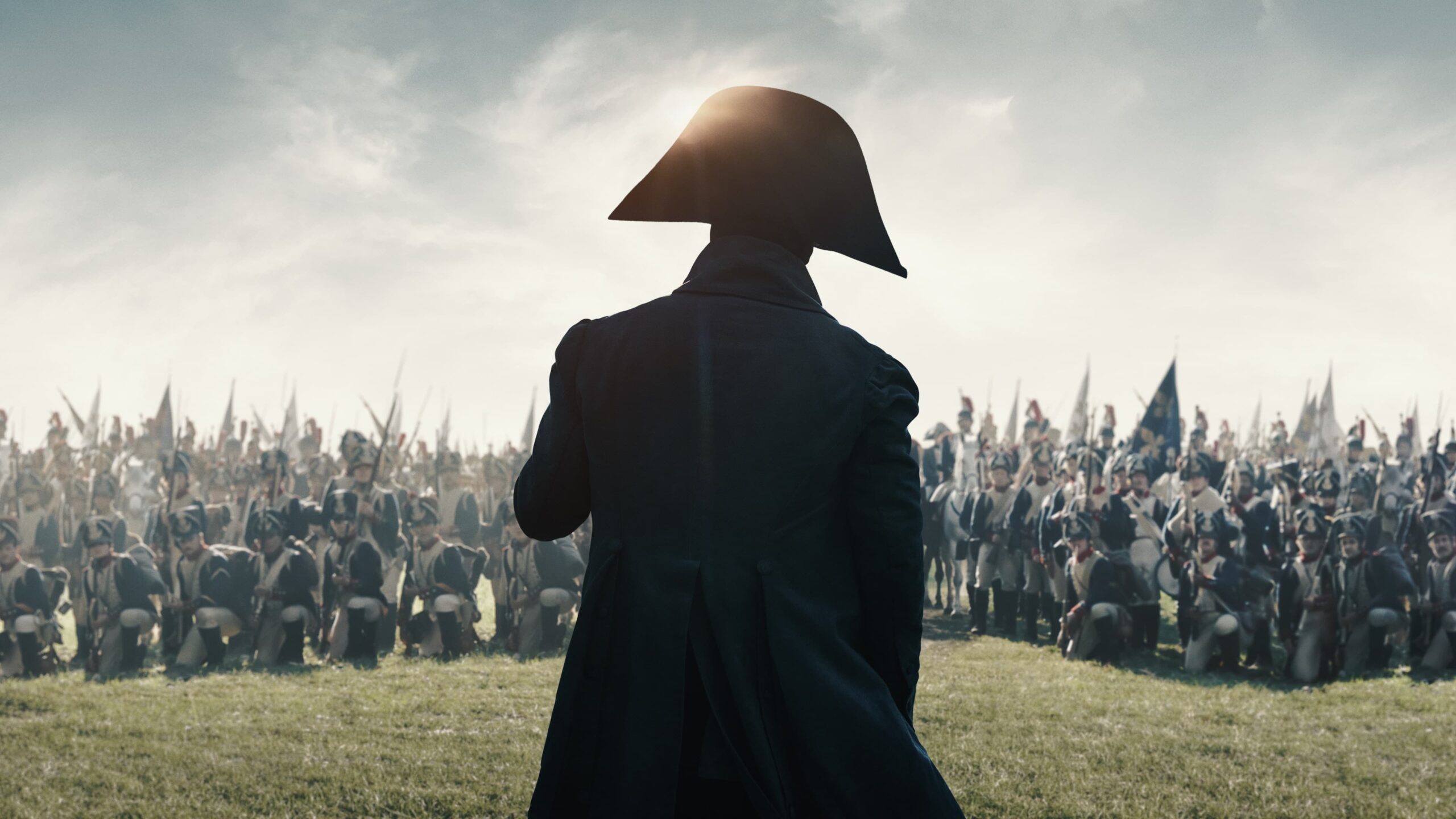Napoleon is a natural fit for a historical epic, but the legendary military leader has never been able to conquer cinema the same way he almost conquered the world. 1954’s Désirée starring Marlon Brando as Napoleon has been largely forgotten. Sergei Bondarchuk explored Napoleon in his Oscar-winning adaptation of War and Peace, although he had less success with 1970’s Waterloo. Stanley Kubrick aspired to direct a Napoleon biopic, casting Jack Nicholson at one point. Since Kubrick’s death, Steven Spielberg has expressed interest in turning his Napoleon screenplay into a miniseries. For now, it remains what some call, “the greatest movie never made.”
Director Ridley Scott and screenwriter David Scarpa opted to forge a new path with their take on Napoleon. With Joaquin Phoenix in the titular role, Napoleon is a well-acted, visually dazzling epic that delivers on the scope one would expect from a larger-than-life figure. (FYI, The Little Corporal was actually average-sized). Just don’t expect to walk away from Scott’s film with a better understanding of who Napoleon was. Scott’s original cut of the film was reportedly four-and-a-half hours. If you think that’s a lot, keep in mind that Bondarchuk’s War and Peace was over seven hours. Meanwhile, Scott has condensed his film into two hours and forty minutes.
Scott’s director’s cut may add more character development and insight into what made Napoleon tick. As for the theatrical release, Napoleon has two speeds. One half is a marriage drama with the other being an action extravaganza. Napoleon excels in the latter, which is to be expected given Scott’s background with films like Gladiator. While historians might have a few notes, the action sequences are genuinely exciting, particularly the frostbitten Battle of Austerlitz. On a technical level, Napoleon is among the year’s most impressive achievements with first-rate effects, costumes, and production design.
It’s in the character department where Napoleon struggles. When Napoleon isn’t on the battlefield, he’s engaged in combat with his wife, Empress Joséphine (Vanessa Kirby). You get the sense that the filmmakers wanted this relationship to be at the story’s heart. Although Phoenix and Kirby turn in powerhouse performances, the audience never feels as invested in this marriage as they should. The film paints Napoleon as a leader who was never satisfied, no matter how many territories he overtook. His obsession with the world and his legacy overshadows his marriage around every turn, not realizing what he’s lost until it’s gone. By the film’s conclusion, though, we still don’t understand why Joséphine was among Napoleon’s final words.
Napoleon falls short of being an effective character study. As an action spectacle, however, one has to ask, “Are you not entertained?” Napoleon is an entertaining experience with rousing battles and moments of dry wit sprinkled throughout Scarpa’s script. It paints a stunning portrait of Napoleon the Conqueror, although we’re left wanting more from Napoleon the Strategist, Napoleon the Husband, and Napoleon the Man. Napoleon nonetheless works well enough as popcorn entertainment, but let’s be honest. Scott was never going to top Bill & Ted’s Excellent Adventure, which strangely still contains the best depiction of Napoleon to date.

